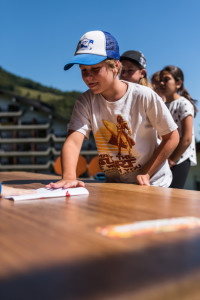Camp Blog
Benefits of a Language Summer Camp
17th April 2023
Learning a second language at a summer camp gives children exposure to an additional language in an authentic, fun, and immersive way that cannot be replicated in a conventional educational environment.
Firstly, learning a language is so much more than being able to read or to speak; it is about connecting to and understanding a country’s culture; its people, its way of life. Learning an additional language at summer camp allows children to make these connections through their own eyes, in their own way, and at their own pace.
The process is also so much fun. At a summer camp, children learn a language by doing what they do best: being children, amongst other youngsters sharing the same experience. The combination of language learning and camp activities appropriate to their age group means that the progress children make is much more authentic, enjoyable, and long-term. Instead of language development being viewed as a chore, it becomes fun, eye opening and positive.
Finally, and equally as importantly, learning a second language at camp builds a child’s social skills, their confidence and gently pushes them outside of their comfort zone. Not only can children communicate with many more people of their age and establish and maintain the friendships they made whilst at camp, but they also become more confident individuals and feel able to manage more unfamiliar situations they find themselves in.
Learning a second language at a summer camp provides opportunities that are impossible to experience elsewhere. It opens doors to relationships with other youngsters who do not share the same first language. This is such a culturally enriching and valuable experience for a young person.
The environment is more natural, engaging, and more conducive to a positive learning experience. Your child will be leaving summer camp a more fulfilled individual, with a renewed sense of confidence and achievement that will stay with them long after the camp has ended.



